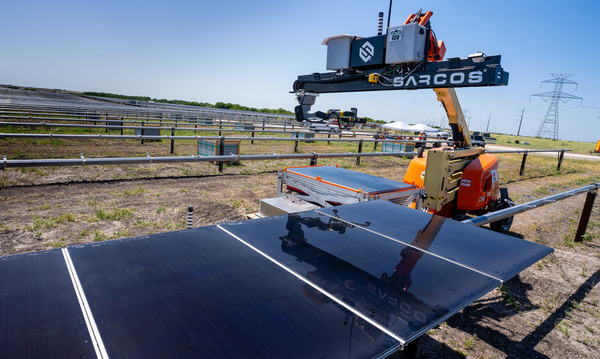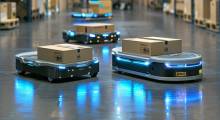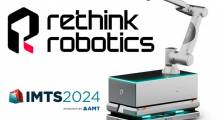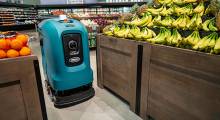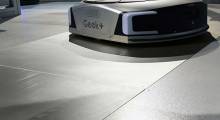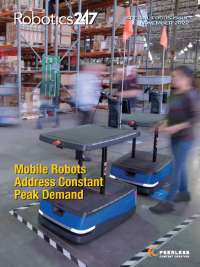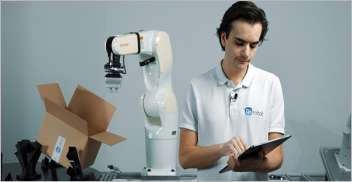Sarcos Technology and Robotics Corp. today announced that it is collaborating with Blattner Co. to develop and refine Sarcos' mobile robot designed to safely and efficiently install photovoltaic, or PV, modules for utility-scale solar projects.
“We are extremely optimistic about the use of robots for solar construction to help address the workforce shortages, productivity, and safety challenges that are currently slowing down the progress of U.S. solar initiatives,” said Matt Hadsell, senior manager for innovation and development at Blattner. “We are committed to working with Sarcos to refine their autonomous robotic solar construction system so that we can be one step closer to achieving our nation’s clean energy goals.”
Avon, Minn.-based Blattner is a diversified renewable energy contractor providing expertise and collaborative construction solutions nationwide. It is the parent company of Blattner Energy and D.H. Blattner & Sons, which are members of the Quanta Services family of contractors in their respective markets.
Building on more than a century of innovation, Blattner said it provides engineering, procurement, and construction services for utility-scale solar, wind, energy storage, and power-delivery projects with proven project management and self-performance of all major work activities.
Robots could help solar power scale
Robotics is becoming critical to the global effort to increase solar power output, given worker shortages and the labor-intensive installation process, said the companies. According to the Solar Energy Industries Association (SEIA), annual solar installations will need to increase by 60% through 2030 to meet climate targets, which would require nearly 800,000 new solar workers to meet this goal.
In addition to increasing productivity to mitigate labor pressures, robots can improve job safety, said Blattner. The company said it is committed to finding ways to meet aggressive climate targets while providing a positive and healthy work environment for its growing project teams.
This effort will also build upon the Sarcos Outdoor Autonomous Manipulation of Photovoltaic Panels (O-AMPP) project, which is funded through the U.S. Department of Energy’s Solar Energy Technologies Office (SETO) and aims to streamline the process of solar field construction. The robotic system is being designed to deliver, detect, lift, and place PV modules in the field with the stated goals of:
- Improving worker safety and productivity: The O-AMPP system will enable a smaller installation team to install modules at a substantially higher rate while optimizing safety.
- Improving construction speed: The O-AMPP system will enable faster installation speeds of PV modules, often the most labor-intensive task when constructing a PV site.
- Improving installation quality: Robotic handling of modules will ensure that as modules are picked up and placed, they are consistently supported and positioned, resulting in less module breakage.
Blattner, Sarcos prep for field trials
Sarcos and Blattner said they are collaborating to evaluate and further refine the technology, functionality, and safety of the system through a series of field trials that will occur over the next several years. Blattner will provide funding, expertise, and facilities for testing.
The companies said they plan to test the system through varying environmental conditions across different sites in preparation for Sarcos’ commercial launch of the system, currently estimated for late 2024. Sarcos and Blattner claimed that their innovative efforts will help shape the future of solar energy installation and “provide valuable data for determining the potential of automation and workforce evolution within the industry.”
“Like many industries, the solar construction industry is experiencing significant worker shortages post-COVID and has not yet recovered,” said Laura Peterson, interim president and CEO of Sarcos. “Our autonomous robotic solar construction system is expected to ease these workforce challenges while improving overall safety and speed in the solar installation process.”
Sarcos said it designs, develops, and manufactures mobile robots and software to enable the safest, most productive workforces in the world. The Salt Lake City-based company said its systems can operate in challenging environments for aviation, marine, and solar applications.
Article topics
Email Sign Up

